
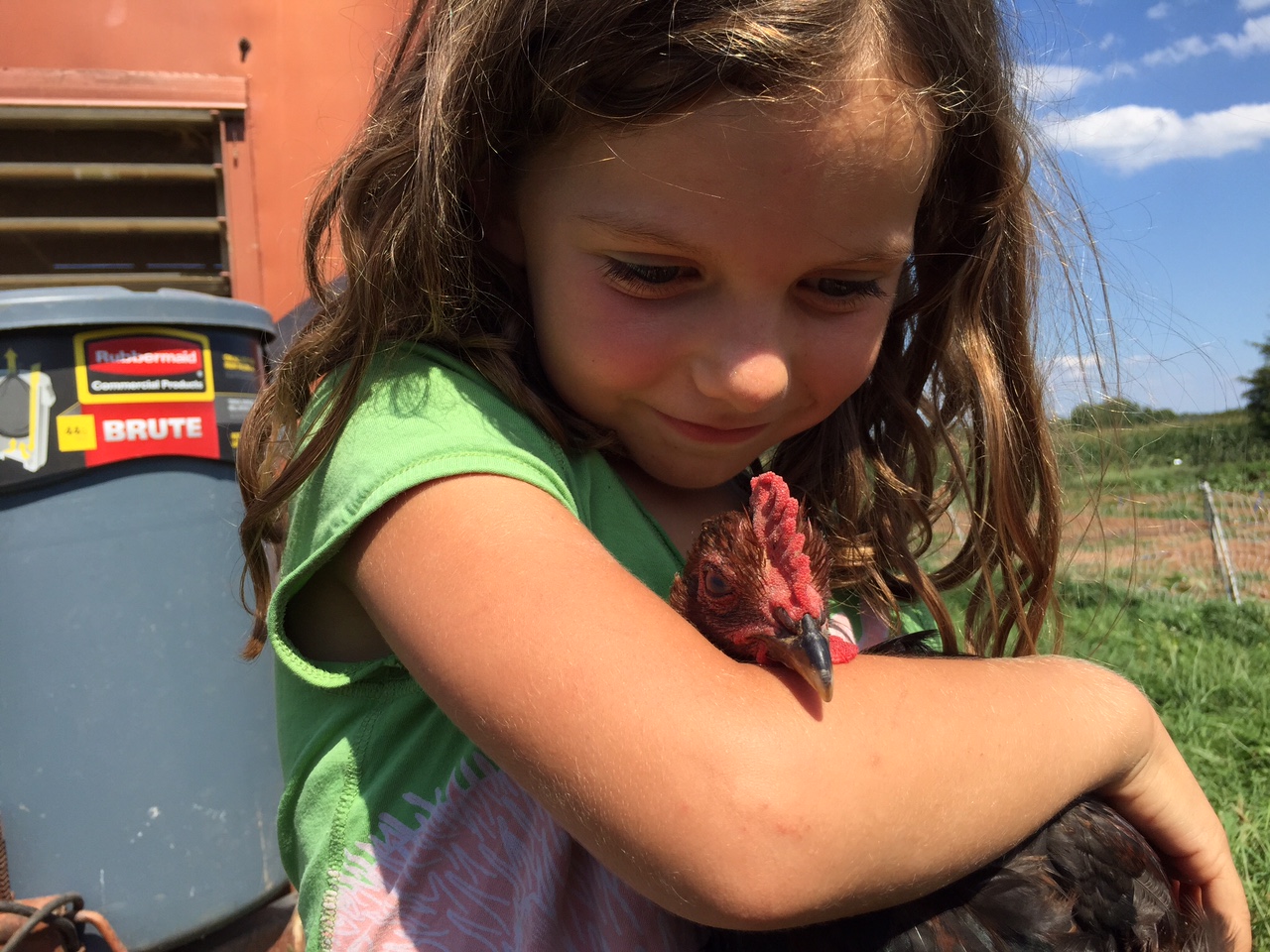
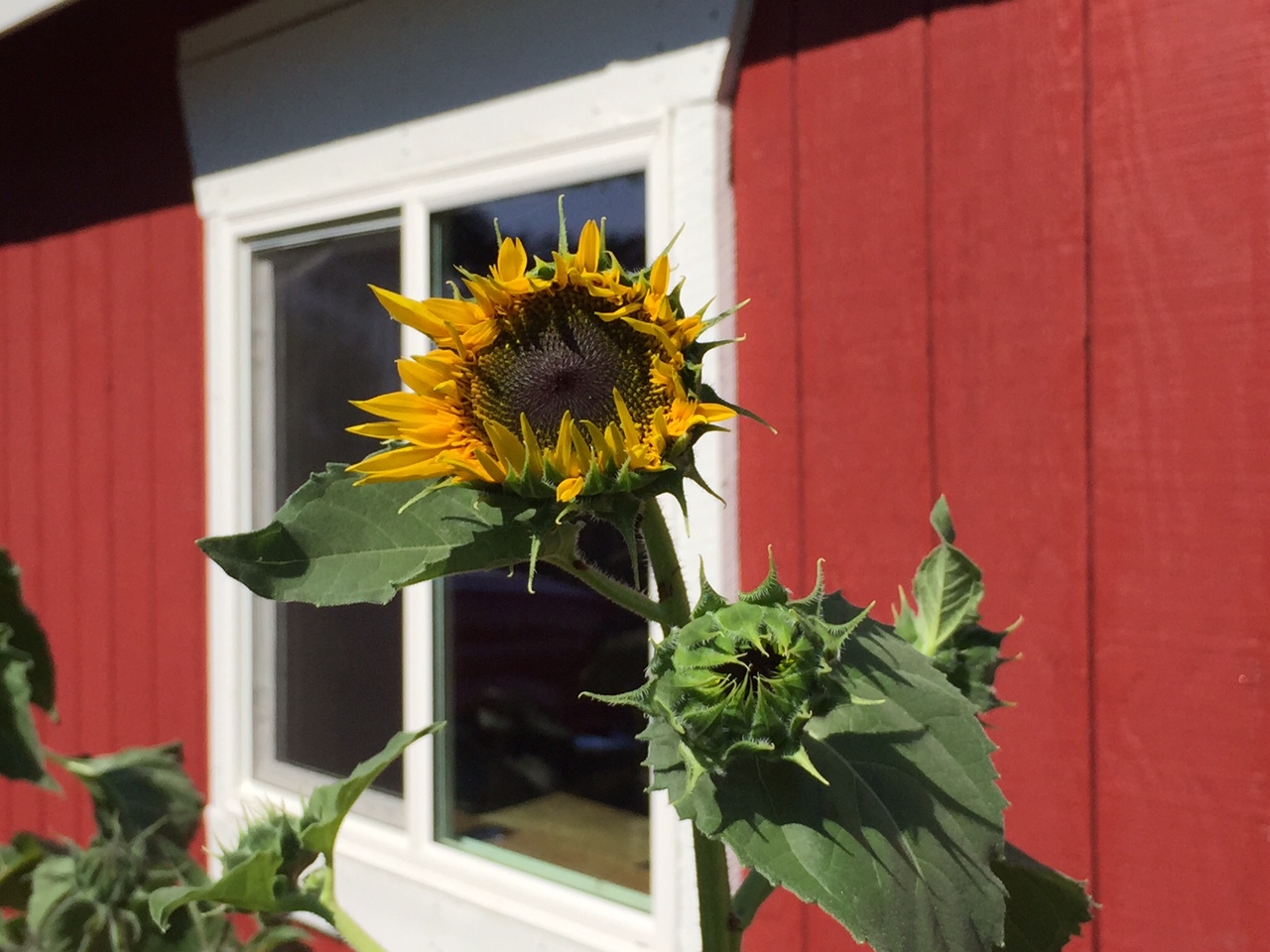
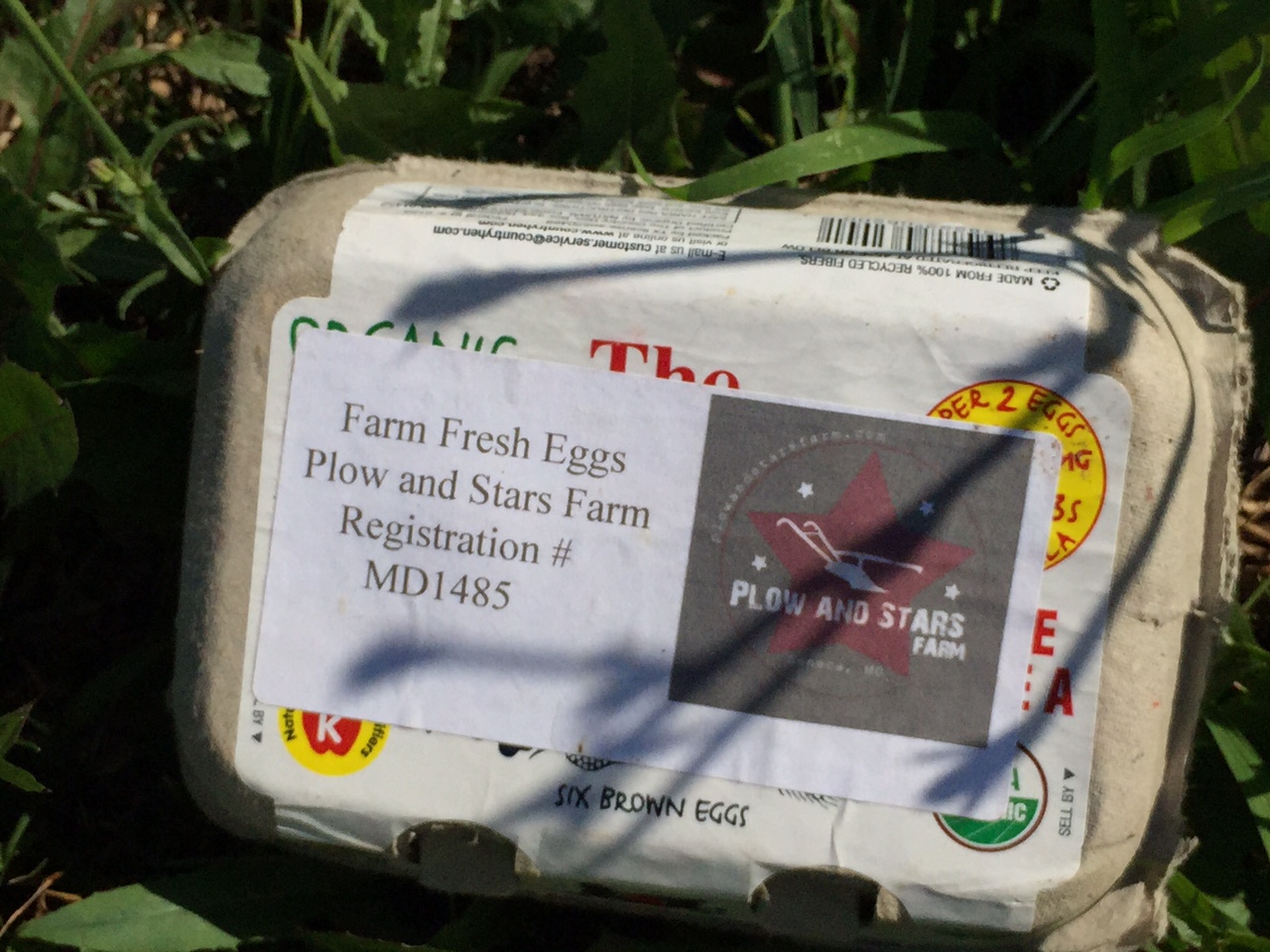
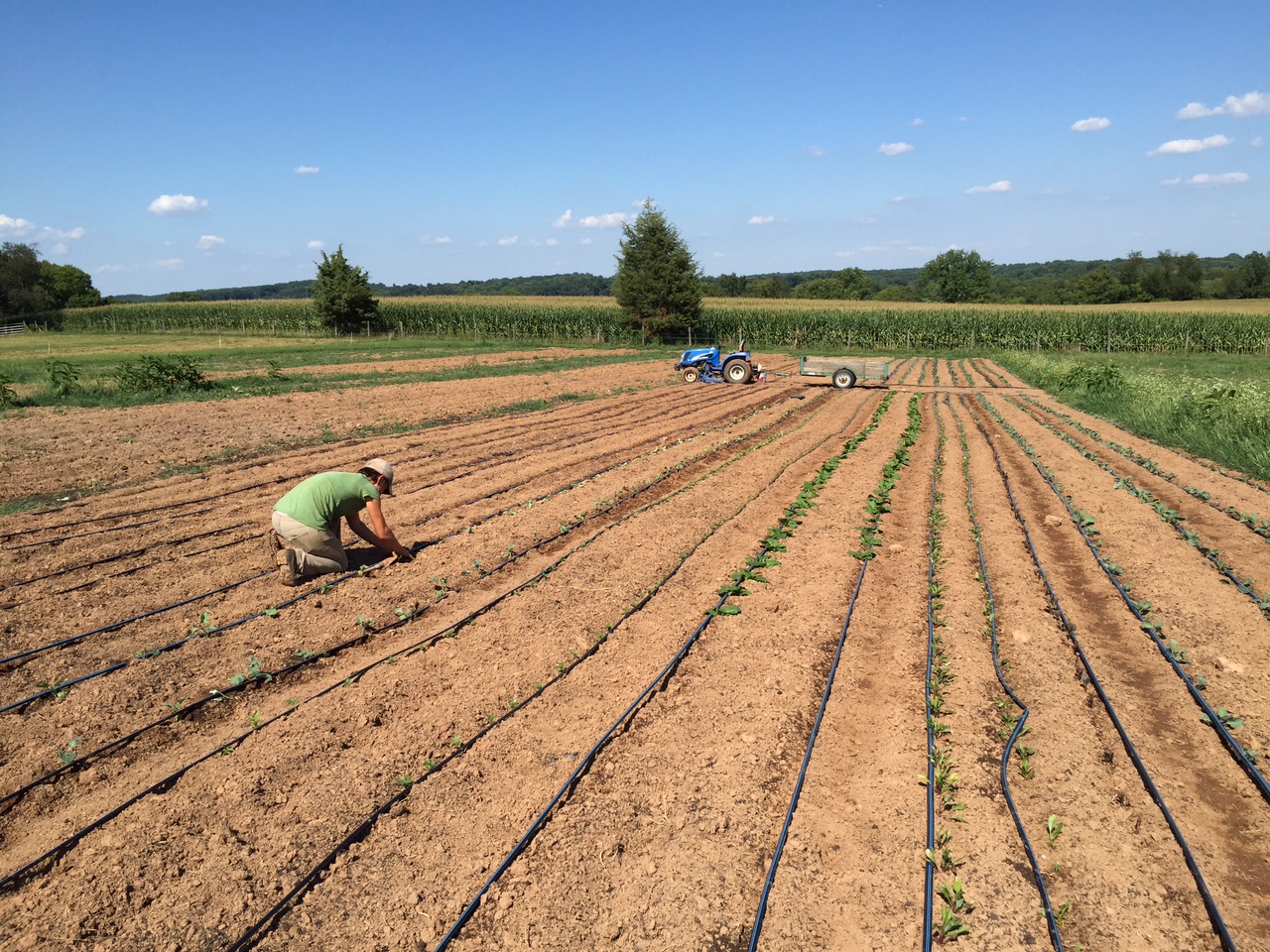
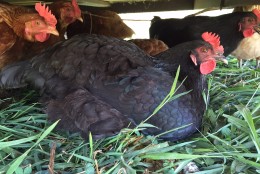
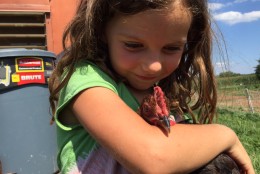
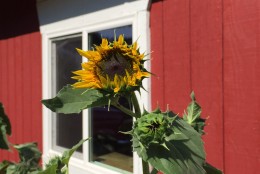
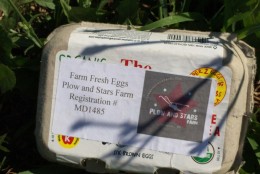
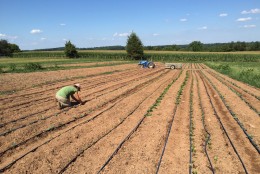
WASHINGTON — Chickens are big business in Maryland, and the state’s Department of Agriculture is taking no chances with the billion dollar poultry industry. As state and county fairs approach, some restrictions have been laid out: among them, no poultry exhibits at the Maryland State Fair or at any of the county and local fairs that start after Aug. 25, 2015.
It’s one of the strategies that will be a big disappointment to some 4-H participants and the fans of fancy feathered hens and roosters — the exotic and colorful breeds can be big draws at county fairs.
Amanda Cather and Mark Walter at Plow and Stars Farm in Poolesville, Maryland have two small flocks of chickens: one consisting of egg producers, or “layers” and meat chickens that are destined for the dinner table. The husband and wife don’t exhibit their birds at fairs, but are deeply concerned with the possible spread of avian flu.
The virus isn’t much of concern in summer, but it gives poultry producers the jitters when the cool temperatures hit. There are two reasons for that:
- The avian virus can’t survive in hot weather, but when the temperatures dip, that’s when the trouble begins.
- And with cooler weather, the migration of wild waterfowl begins — wild geese and ducks have been found to carry avian flu, and flying over farms can lead to exposure.
At Plow and Stars Farm, the laying hens are kept outside so they can have a natural diet of bugs along with their feed. And they’re moved to a fresh section of pasture on a regular, rotating basis. But that outdoor exposure puts them at risk, says Cather. With an eye to the sky, Cather says she’s worried.
“We really are committed to this outdoor lifestyle that they have,” Cather says. But because it has the potential to put them in contact with birds that carry the avian flu, she adds, “it may be our biggest hazard for them. So, we really have to think about that.”
“If we got nailed by the avian flu, we could lose our whole flock of chickens,” says Mark Walter, a school teacher who explains he assists his wife Amanda Cather’s farming operation in the summer. Walter says right now, those laying hens are producing three dozen eggs a day–and if the meat hens are hit, that would be a second tough break for Walters’ clients who pay up front on an annual basis for produce and meat.
Their daughter, Sadie, isn’t really concerned about the avian virus. She’s keeping a wary eye on the rooster on the property. She explains that while most of the chickens are nice , her favorites — Big Mama and Brownie, allow themselves to be handled and petted. The rooster isn’t so friendly. “One time I was putting this chick down right next to him, and he charged me.”
The state’s prohibition on showing poultry in an effort to stave off will affect a number of state and county fairs but the Montgomery County Fair will be able to feature feathered exhibitors as the fair wraps up before the state ban begins.








